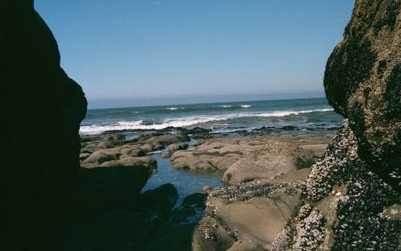BHR-62
Brit-Am Historical Reports
1 February 2011 25 Shevet 5771
Contents:
1. Archaeology: Brit-Am Version of Explorator 13.41
2. "The early-medieval use of ethnic names from classical antiquity. The case of the Frisians"
by Jos Bazelmans.
3. Extracts from Two Articles Concerning Historical Upheavals and Climate Change.
|
Brit-Am Discussion Group |
Contents by Subject |
Research Recognition Reconciliation Contribute |
|
Site Map Contents in Alphabetical Order |
This Site |
1. Archaeology: Brit-Am Version of Explorator 13.41
From: david meadows <rogueclassicist@gmail.com>
================================================================
AFRICA
================================================================
Excavating a Kingdom of Meroe site in Sudan:
http://www.radio.cz/en/section/curraffrs/czech-team-excavates-ancient-sites-dedicated-to-nubian-gods
Finds from various periods along Tanzania's coast:
http://www.eturbonews.com/20700/archeologists-discover-ancient-ruins-along-tanzanian-coastal-are
================================================================
ANCIENT NEAR EAST AND EGYPT
================================================================
Theory about some 'secret rooms' in the Great Pyramid:
http://www.livescience.com/history/great-pyramid-of-giza-houses-secret-rooms-110128.html
http://www.physorg.com/news/2011-01-great-pyramid-secret-chambers-french.html
http://news.discovery.com/archaeology/great-pyramid-giza-hidden-chambers-110127.html
http://www.google.com/hostednews/afp/article/ALeqM5iMCQvP84YQG7b1iyE8bP_uI0PlXw?docId=CNG.b27ce982d5a2c46fdde0c964ca0fcea9.ca1
Remains of a Second Temple 'pilgrim road':
http://www.bloomberg.com/news/2011-01-25/archaeologists-discover-ancient-pilgrim-road-through-jerusalem-s-old-city.html
... and they've finished clearing a Second Temple water channel/tunnel
(different
spins in the coverage of this one):
http://www.artdaily.org/index.asp?int_sec=2&int_new=44437
http://www.antiquities.org.il/about_eng.asp?Modul_id=14
http://www.jpost.com/NationalNews/Article.aspx?id=205251
http://www.jta.org/news/article/2011/01/25/2742691/excavation-on-ancient-jerusalem-tunnel-completed
http://arabnews.com/middleeast/article242615.ece
http://www.ynetnews.com/articles/0,7340,L-4019130,00.html
http://www.haaretz.com/print-edition/news/digging-completed-on-tunnel-under-old-city-walls-in-east-jerusalem-1.338990
http://www.haaretz.com/print-edition/news/newly-uncovered-tunnel-passes-under-old-city-walls-1.338990
http://www.deseretnews.com/article/700103989/Ancient-water-tunnel-excavated-in-Jerusalem.html?s_cid=rss-48
http://www.huffingtonpost.com/2011/01/26/ancient-water-tunnel-exca_n_813966.html
http://abcnews.go.com/International/wireStory?id=12756921
... and I think this is fallout therefrom:
http://www.haaretz.com/print-edition/news/new-jerusalem-tunnel-will-damage-temple-mount-palestinians-say-1.339213
http://www.therecord.com/news/world/article/477944--excavated-ancient-tunnel-in-jerusalem-s-old-city-splits-neighbours
http://www.haaretz.com/print-edition/news/palestinians-say-new-jerusalem-tunnel-will-damage-temple-mount-1.339213
A preliminary report from En Gedi:
http://www.hadashot-esi.org.il/report_detail_eng.asp?id=1594
================================================================
ANCIENT GREECE AND ROME (AND CLASSICS)
================================================================
Remains of an 'African' soldier from Warwickshire:
http://www.bbc.co.uk/news/uk-england-coventry-warwickshire-12280213
but cf:
http://killgrove.blogspot.com/2011/01/african-in-avon.html
Visit our blog:
http://rogueclassicism.com/
================================================================
OTHER ITEMS OF INTEREST
================================================================
... and the JPost seems curiously positive about the Naked Archaeologist:
http://www.jpost.com/ArtsAndCulture/Entertainment/Article.aspx?id=205506
The Egyptian jackal is actually a wolf, apparently:
http://news.mongabay.com/2011/0126-hance_africanwolf.html
On discovering new species and imperialism:
http://opinionator.blogs.nytimes.com/2011/01/23/heroic-naturalists-or-imperialist-dogs/
It wasn't easy being king:
http://www.physorg.com/news/2011-01-kings.html
http://www.guardian.co.uk/education/2011/jan/28/king-survey-dangerous-job-history
On Genghis Khan and climate change:
http://www.dailymail.co.uk/sciencetech/article-1350272/Genghis-Khan-killed-people-forests-grew-carbon-levels-dropped.html
http://news.discovery.com/earth/mongols-vikings-and-romans-connected-to-climate.html
Mark Twain's autobiography has apparently created a market for imitators:
http://www.nytimes.com/2011/01/24/books/24twain.html
================================================================
TOURISTY THINGS
================================================================
Hadrian's Wall:
http://www.telegraph.co.uk/travel/destinations/europe/uk/8280915/Hadrians-Wall-a-comeback-by-the-Romans-in-the-North.html
================================================================
EXHIBITIONS, AUCTIONS, AND MUSEUM-RELATED
================================================================
Dura Europos:
http://www.bc.edu/offices/pubaf/news/2011/duraeuropos01272011.html
Poetry of Drawing:
http://www.ft.com/cms/s/2/04a4fd62-2a63-11e0-804a-00144feab49a.html
The Pergamon Museum has restored a pile of items from the Tell Halaf display
which were
shattered during WWII:
http://www.artdaily.org/index.asp?int_sec=2&int_new=44517
http://www.bbc.co.uk/news/world-europe-12308854
http://au.news.yahoo.com/thewest/entertainment/a/-/entertainment/8735022/berlin-shows-off-reallife-indiana-jones-treasures/
http://in.reuters.com/article/2011/01/28/idINIndia-54490720110128
http://www.washingtontimes.com/news/2011/jan/27/statues-devastated-in-wwii-go-on-show-in-berlin/
http://www.google.com/hostednews/canadianpress/article/ALeqM5gmFfNJmVq-ji09Za3LyDm6CICt4Q?docId=5774679
http://www.mercurynews.com/entertainment/ci_17216218
http://www.huffingtonpost.com/huff-wires/20110127/eu-germany-rescued-statues
http://www.salon.com/wires/entertainment/2011/01/27/D9L0OI182_eu_germany_rescued_statues/
2. The early-medieval use of ethnic names from classical antiquity.



